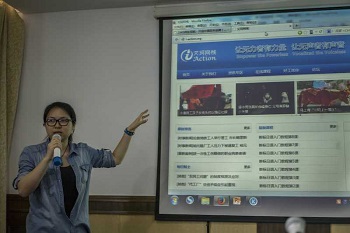LESSON
Lesson Learned: Strengthening Grassroots Women’s Groups to Promote and Protect Civic Space in Uganda
Communication strategies should reflect the local context and most importantly be tailored towards the target audience. It is therefore important to identify the communication tools with the greatest local resonance and translate all material into local languages.
Project Partner
All in One Womens Association
Project Description
The project goal is to empower 6,000 women by raising awareness of their gender specific rights, promoting women’s political participation, and addressing all forms of injustices that affect women’s wellbeing; strengthen the capacity of 100 unregistered women’s groups to become registered under the NGOs Act 2016; and support 100 registered women’s groups in advocating, promoting and protecting civic space in Uganda. Project activities will incorporate actions in response to the Covid-19 crisis, as it impacts women, including gender-based violence as well as social and economic pressures.
Evaluation Date
July 2023
Theme
Country
